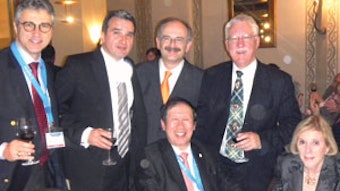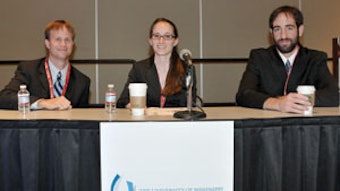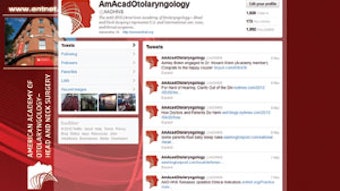Payer Appeals Process: Academy Resources to Assist Members with Claim Denials
Every day the Academy receives member inquiries and notifications regarding claim denials and payment policy issues that arise when seeking payment for otolaryngology procedures from private insurers and Medicare. In response, the Academy has established policy that we follow when we receive inquiries about private payer denials to determine whether the matter is a local or state issue, or a national issue that the Academy Physician Payment Policy (3P) workgroup would need to investigate further. We have found that many times there is a better outcome when a local issue is addressed by the local AAO-HNS physician members who work directly with the payer’s Medical Director on issue resolution. The Academy has resources available to members, including the coding hotline, information accessible on the Academy’s Practice and Advocacy websites, appeal template letters, clinical indicators, and policy statements to help members obtain appropriate payment for various otolaryngology procedures. The Academy’s Health Policy team closely monitors and tracks private payer policies and Medicare Administrative Contractor (MAC) policies affecting members. Although the Academy cannot represent physician members individually on each issue with payers, we believe the established policy provides beneficial assistance to members having problems with getting claims paid and we appreciate being notified of any problems you are encountering so we can track the issue and provide any additional assistance possible. To further assist members, the Academy has outlined the following recommended steps for members when you encounter difficulties obtaining payment for your services: Contact the Academy’s coding hotline to ensure that the service was billed appropriately (e.g., appropriate modifiers used with appropriate CPT codes). The Coding Hotline is available 9 am-6 pm EST at 1-800-584-7773. This service is an Academy membership benefit (please have your member ID available when calling). Consult the Academy website for various resources to assist with an appeal for a specific service. Some helpful resources include: Clinical Indicators: http://www.entnet.org/Practice/clinicalIndicators.cfm CPT for ENT articles: www.entnet.org/Practice/cptENT.cfm Clinical Practice Guidelines: http://www.entnet.org/Practice/clinicalPracticeguidelines.cfm Appeal Template Letters: http://www.entnet.org/Practice/Appeal-Template-letters.cfm Policy Statements: http://www.entnet.org/Practice/policystatements.cfm For payer issues at the state level, we recommend you contact your state otolaryngology society or state medical society to report the issue. They may be able to provide a better idea of how widespread an issue is among providers in the area. You can access contact information for several state otolaryngology societies at http://www.entnet.org/Community/BOGSocieties.cfm?View=State (Login required). For issues with private payers we also recommend members initially attempt to work directly with the payer’s medical director to obtain more information on their policies and the rationale for denying the initial claim. To do so, members should access the carrier or third party payer’s website, logging in as a provider, and search for the policy relevant to your geographic jurisdiction. For Medicare payment issues, we often recommend you contact the Medicare Administrative Contractor’s (MAC) medical director directly, and contact your regional MAC’s Carrier Advisory Committee (CAC) representative. Currently, there is an ENT CAC representative designated to each state within a MAC jurisdiction (15 geographic regions nationwide). Each representative acts as a liaison between Medicare contractors and state specialty societies. For more information on the CAC representative nomination process, or for local CAC representative contact information, email Health Policy athealthpolicy@entnet.org. The Academy encourages members to take full advantage of available appeals processes when encountering denied claims. Even in cases where you may feel no progress is made, it is important to exhaust your right to appeal in order to gather pertinent information necessary for the Academy to understand the issue. Once you take these recommended steps and a service continues to be inappropriately denied, the Health Policy team may request additional information, including a copy of the applicable policy (this includes denial letters, national or local coverage policies, or any other documentation the payer has provided you during your appeals process, with patient HIPAA information redacted from any materials you provide to the Academy), so staff and 3P can try to determine the root cause of the payer’s denial. Then 3P will determine how widespread your specific issue is and whether additional advocacy efforts are required. If you believe services are being inappropriately denied by a private payer, or your MAC, and have exhausted all appeal options to rectify payment; please email the Health Policy team at healthpolicy@entnet.org.
Every day the Academy receives member inquiries and notifications regarding claim denials and payment policy issues that arise when seeking payment for otolaryngology procedures from private insurers and Medicare. In response, the Academy has established policy that we follow when we receive inquiries about private payer denials to determine whether the matter is a local or state issue, or a national issue that the Academy Physician Payment Policy (3P) workgroup would need to investigate further. We have found that many times there is a better outcome when a local issue is addressed by the local AAO-HNS physician members who work directly with the payer’s Medical Director on issue resolution.
The Academy has resources available to members, including the coding hotline, information accessible on the Academy’s Practice and Advocacy websites, appeal template letters, clinical indicators, and policy statements to help members obtain appropriate payment for various otolaryngology procedures. The Academy’s Health Policy team closely monitors and tracks private payer policies and Medicare Administrative Contractor (MAC) policies affecting members. Although the Academy cannot represent physician members individually on each issue with payers, we believe the established policy provides beneficial assistance to members having problems with getting claims paid and we appreciate being notified of any problems you are encountering so we can track the issue and provide any additional assistance possible.
To further assist members, the Academy has outlined the following recommended steps for members when you encounter difficulties obtaining payment for your services:
- Contact the Academy’s coding hotline to ensure that the service was billed appropriately (e.g., appropriate modifiers used with appropriate CPT codes). The Coding Hotline is available 9 am-6 pm EST at 1-800-584-7773. This service is an Academy membership benefit (please have your member ID available when calling).
- Consult the Academy website for various resources to assist with an appeal for a specific service. Some helpful resources include:
- Clinical Indicators: http://www.entnet.org/Practice/clinicalIndicators.cfm
- CPT for ENT articles: www.entnet.org/Practice/cptENT.cfm
- Clinical Practice Guidelines: http://www.entnet.org/Practice/clinicalPracticeguidelines.cfm
- Appeal Template Letters: http://www.entnet.org/Practice/Appeal-Template-letters.cfm
- Policy Statements: http://www.entnet.org/Practice/policystatements.cfm
- For payer issues at the state level, we recommend you contact your state otolaryngology society or state medical society to report the issue. They may be able to provide a better idea of how widespread an issue is among providers in the area. You can access contact information for several state otolaryngology societies at http://www.entnet.org/Community/BOGSocieties.cfm?View=State (Login required). For issues with private payers we also recommend members initially attempt to work directly with the payer’s medical director to obtain more information on their policies and the rationale for denying the initial claim. To do so, members should access the carrier or third party payer’s website, logging in as a provider, and search for the policy relevant to your geographic jurisdiction.
- For Medicare payment issues, we often recommend you contact the Medicare Administrative Contractor’s (MAC) medical director directly, and contact your regional MAC’s Carrier Advisory Committee (CAC) representative. Currently, there is an ENT CAC representative designated to each state within a MAC jurisdiction (15 geographic regions nationwide). Each representative acts as a liaison between Medicare contractors and state specialty societies. For more information on the CAC representative nomination process, or for local CAC representative contact information, email Health Policy athealthpolicy@entnet.org.
The Academy encourages members to take full advantage of available appeals processes when encountering denied claims. Even in cases where you may feel no progress is made, it is important to exhaust your right to appeal in order to gather pertinent information necessary for the Academy to understand the issue. Once you take these recommended steps and a service continues to be inappropriately denied, the Health Policy team may request additional information, including a copy of the applicable policy (this includes denial letters, national or local coverage policies, or any other documentation the payer has provided you during your appeals process, with patient HIPAA information redacted from any materials you provide to the Academy), so staff and 3P can try to determine the root cause of the payer’s denial.
Then 3P will determine how widespread your specific issue is and whether additional advocacy efforts are required.
If you believe services are being inappropriately denied by a private payer, or your MAC, and have exhausted all appeal options to rectify payment; please email the Health Policy team at healthpolicy@entnet.org.








